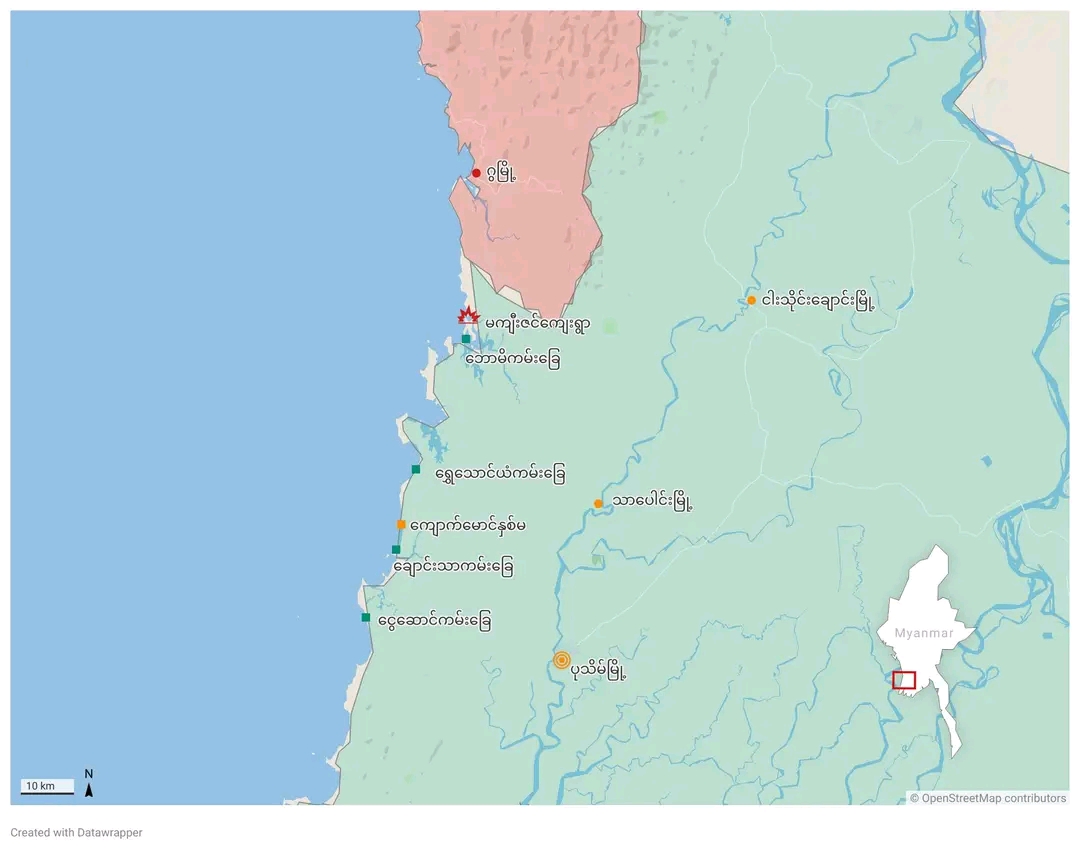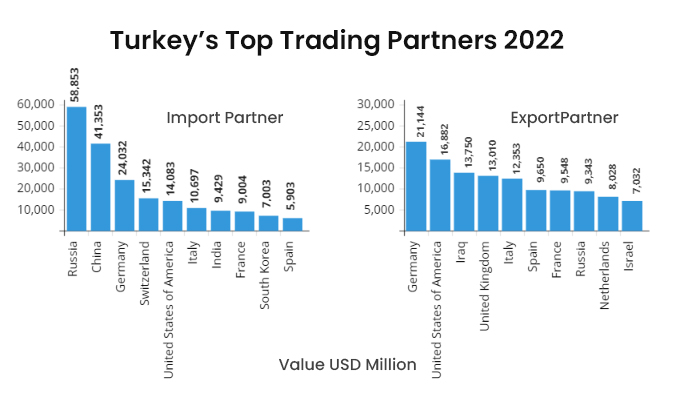
Turkey’s main trading countries
Turkey is strategically located at the crossroads of Europe, Asia, and the Middle East, making it a hub for global trade. Over the years, it has established strong trade relations with many countries, reflecting its economic diversification and geopolitical significance. Here’s a detailed overview of Turkey’s main trading partners:
Top Export Destinations
1. Germany: Germany is Turkey’s largest export destination, primarily importing Turkish automotive products, machinery, textiles, and agricultural goods. The close economic ties are supported by a significant Turkish diaspora in Germany.
2. United States: Turkey exports a variety of products to the U.S., including textiles, machinery, agricultural products, and defense equipment. The two countries also collaborate on technology and manufacturing.
3. United Kingdom: After Brexit, Turkey and the UK signed a free trade agreement, boosting trade in textiles, automotive parts, and white goods.
4. Italy: Italy is a key European partner for Turkey, particularly in automotive components, machinery, and iron and steel products.
5. Iraq: Sharing a border, Iraq is a major market for Turkish construction materials, food products, and consumer goods.
6. Spain: Spain imports Turkish textiles, automotive components, and iron and steel, highlighting strong trade within the European Union framework.
7. France: France imports Turkish machinery, textiles, and agricultural products. The two countries maintain robust trade in industrial goods.
8. Netherlands: Known for its role as a European logistics hub, the Netherlands imports Turkish machinery, textiles, and chemical products.
9. Russia: Russia is a vital market for Turkish fruits, vegetables, textiles, and manufactured goods, alongside energy cooperation.
10. United Arab Emirates (UAE): The UAE is a growing trade partner, particularly for Turkish gold, jewelry, and construction materials.
Top Import Sources
1. China: China is Turkey’s largest import source, supplying electronics, machinery, textiles, and raw materials. The trade relationship has grown significantly with China’s Belt and Road Initiative.
2. Russia: Russia is a primary supplier of natural gas, crude oil, and agricultural products to Turkey, underscoring energy dependence.
3. Germany: Germany exports machinery, chemicals, and automotive products to Turkey, reinforcing mutual industrial collaboration.
4. Italy: Italy provides Turkey with machinery, chemicals, and industrial equipment, reflecting a balanced trade relationship.
5. South Korea: South Korea supplies Turkey with electronics, automobiles, and technology components, driven by expanding industrial cooperation.
6. United States: U.S. exports to Turkey include aircraft, machinery, agricultural products, and medical devices.
7. India: India supplies Turkey with chemicals, textiles, and raw materials for various industries.
8. Saudi Arabia: Despite occasional political tensions, Saudi Arabia remains an important source of petrochemicals and raw materials.
9. Iran: Turkey imports oil, natural gas, and petrochemicals from Iran, benefiting from geographical proximity.
10. France: France exports machinery, chemicals, and luxury goods to Turkey, highlighting diversified trade ties.
Key Trade Features
1. Customs Union with the EU: Turkey’s 1995 Customs Union agreement with the EU facilitates the seamless flow of industrial goods, making the EU a critical trade bloc.
2. Regional Influence: Proximity to the Middle East, Europe, and Central Asia gives Turkey access to diverse markets, boosting its export and import capabilities.
3. Energy Trade: Turkey is a major transit hub for energy pipelines, especially for Russian and Azerbaijani natural gas, enhancing its geopolitical role.
4. Diversification Efforts: Turkey aims to reduce reliance on specific partners like Russia and China by fostering relationships in Africa, Southeast Asia, and Latin America.
Turkey’s trade relationships reflect its unique position as a bridge between continents, balancing partnerships in the West with growing ties in the East.




Leave a Reply